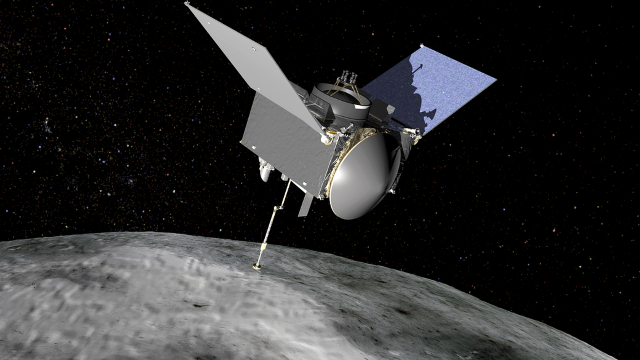
Last month, NASA announced it is building an asteroid laboratory at the Johnson Space Center, where scientists are looking forward to examining samples of rocky remnants from the early days of the solar system. Some of the researchers that will study the material are based at the University of Arizona, which earned top marks in space science in U.S. News & World Report’s 2021 Best Global Universities ranking.
UArizona currently holds leadership positions in NASA’s OSIRIS-REx mission to retrieve and analyze particles from asteroid Bennu, as well as the effort to capture the first direct image of a black hole.
“I am extremely proud to see our university once again recognized as one of the world’s most respected academic research institutions,” said University of Arizona President Robert C. Robbins in a statement. “The groundbreaking work of our faculty and research staff allows us to tackle the world’s most significant challenges while expanding our knowledge into the furthest reaches of the universe.”
According to a factsheet compiled by NASA, OSIRIS-REx launched in 2016. The surveyor first orbited the sun, then used Earth’s gravitational field to assist it on its way to Bennu. In August 2018, OSIRIS-REx’s approach to Bennu began. In March 2021, OSIRIS-REx will begin its return journey to Earth, arriving two and a half years later in September 2023.
“I’m very thankful that our team worked so hard to get this sample stowed as quickly as they did,” said Dante Lauretta, OSIRIS-REx principal investigator and a professor of planetary sciences at the University of Arizona. “Now, we can look forward to receiving the sample here on Earth and opening up that capsule.”
NASA said that for two years after the sample return (from late 2023-2025) the science team will catalog the sample and conduct the analysis needed to meet the mission science goals. NASA will preserve at least 75% of the sample at NASA’s Johnson Space Flight Center for further research by scientists worldwide, including future generations of scientists.
OSIRIS-REx academic partners include the University of Arizona, Arizona State University, Massachusetts Institute of Technology, and Harvard University.
The U.S. Army Corps of Engineers has been tasked with…
Brown and Caldwell, a leading environmental engineering and construction firm,…
Humboldt State University, one of four campuses within the California…